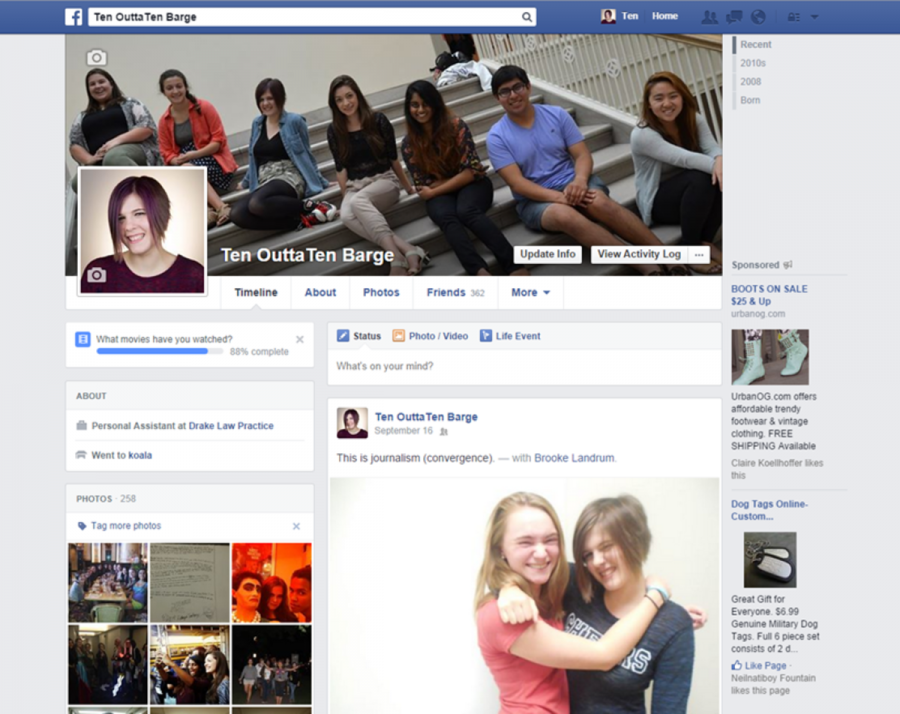Seniors screen social media
Some students go so far as to change their own Facebook accounts, like this staff writer. It becomes difficult for a college admissions officer to track their social media profile. But with some sites, that is not a necessity.
September 19, 2014
Applying for college is an intricate process that includes joining extracurriculars, perfecting a GPA and untagging yourself from Facebook photos.
That last one might seem a little out of place in the world of academia, but the fact is that college admissions officers are increasingly checking the social media accounts of prospective students to determine admission and scholarship chances.
According to “The New York Times,” “Of 381 college admissions officers who answered a Kaplan telephone questionnaire this year, 31 percent said they had visited an applicant’s Facebook or other personal social media page to learn more about them – five-percentage-point increase from last year.”
Around the country, students change their Facebook names to hide their Facebook identities.
Takeshi Sadachi, a Japanese exchange student, changed his name to Erika Sawajiri, his favorite actress, when taking the test to become a student here.
“When university students are looking for jobs, it’s popular to change their name [on Facebook],” Sadachi said. He added that many Japanese people do not want to show their real name on the internet, so they use nicknames like their initials instead.
However, the practice is not very widespread in Cincinnati yet.
“I would advise being careful with what you post as opposed to changing your name because the information that is there is still going to be yours and the cycle of employment checking your social media isn’t going to change,” counselor Megan Brenner said.
Other sites like Twitter are screened by college admission recruits, and some past SHS students have had their scholarships or acceptances revoked because of inappropriate tweets.
More obscure social media sites like Tumblr, Reddit and Instagram are harder to find or have less sensitive material, but many are becoming more trackable.
“I wouldn’t like that because I think part of the reason you use Tumblr is that no one knows who you are,” senior Lisa Ruffin said.
Other students still choose not to have a social media footprint at all, disconnecting from all their accounts or just never getting them.
Whatever choice rising seniors make, they should know that it may affect their future, whether in college, their career or even their personal life.



![Mock Trial members from Gold and Green team last year pose for a picture in front of the OCLRE building in Columbus. "We all put in so much work [last] year. I know [this] year we’ll come back improved and ready to win!” said Ogunbodede.](https://shsleaf.org/wp-content/uploads/2025/10/IMG_4121-300x205.jpg)



